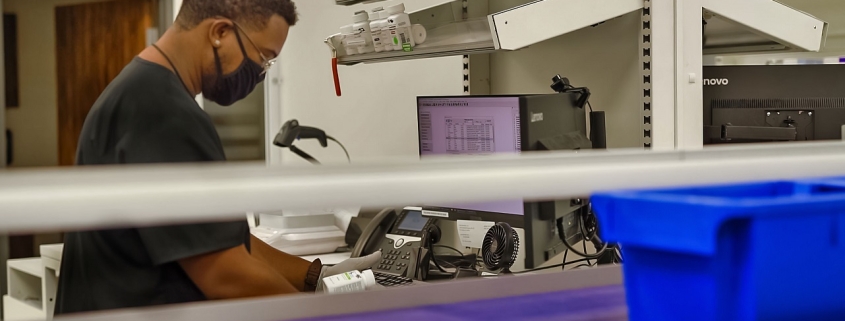What Does the URAC Re-Accreditation Mean for You?
The pharmacy’s most recent re-accreditation announcement impacts you more than you may think.
AON’s in-house specialty pharmacy announced it has received re-accreditation through URAC, Utilization Review Accreditation Commission. Established in 1990, URAC is a leading accrediting body ensuring the highest standards of care are achieved in healthcare. The organization currently offers a variety of accreditations and certification programs in the categories of pharmacy, patient care management, administrative management, digital health and telehealth, health plan, and mental health and substance use disorder parity.
Related: American Oncology Network’s In-House Specialty Pharmacy Re-Accredited by URAC
The pharmacy received initial URAC accreditation in February 2020 after working alongside URAC’s experts to align policies and procedures to those outlined for accreditation. In order to achieve accreditation, the pharmacy met the required standards in nine areas: risk management, operations and infrastructure, performance management and improvement, consumer protection and empowerment, pharmacy operations, medication distribution, patient service and communication, patient management, and lastly, reporting performance measures to URAC.
Accreditation is an indication of meeting high standards of care.
Accreditation is not achieved easily. It also can be a process that takes place over several months to a year, depending on the accreditation standards and rigorous review phases. Organizations, such as AON, that pursue and earn accreditation have successfully met multiple outcomes. Learning that an organization or specific department is accredited should confirm that the care and services being provided are of the highest quality and meet the industry’s standards. For patients using an accredited specialty pharmacy, such as AON’s Pharmacy, this should bring peace of mind that the organization providing oral oncolytic medications has spent time ensuring effective processes and procedures are in place.
Accreditation keeps the organization accountable for consistently meeting high standards of care.
Achieving re-accreditation status is a goal that shows the dedication the organization has to be compliant with the industry’s best practices. Allowing lapses in accreditation and not seeking renewal can be troubling signs. Throughout the accreditation years, organizations are required to provide frequent updates and measurements on key outcomes to remain aligned with the accreditor’s standards. If this is not the case, the organization risks losing its accredited status. Maintaining accreditation is an ongoing process that drives accountability from the organization.
While it may seem that accreditation is only a seal indicating effective healthcare measures are in place to ensure safe patient care standards, it carries more impact and influence on you as either an AON physician, a member of the care teams or a patient. Here is what to know according to AON Senior Pharmacy Director Doug Braun.
What is specialty pharmacy accreditation?
It is an accreditation designed specifically for pharmacies providing an advanced level of pharmacy services and disease management for patients using medications that require special handling, storage and distribution requirements. This accreditation demonstrates a pharmacy’s emphasis on quality improvement, safety, delivery of patient-centric care management and regulatory compliance.
Why obtain multiple accreditations?
In 2017, only 24.5% of specialty pharmacies achieved accreditation. As competitiveness and insurance contract requirements expand, achieving secondary accreditation has become necessary.
“To assure we meet the requirements of payers and to demonstrate the superior service we provide as a healthcare entity, obtaining and maintaining triple specialty pharmacy accreditation status is vital,” said Braun.
How does maintaining specialty pharmacy accreditation demonstrate AON Pharmacy’s commitment to excellence?
The achievement of accreditation ensures relevance, value and integrity to patients, providers and payers. It helps pharmacies meet payer requirements for financial reimbursement and stand out from competitors. It also demonstrates an ongoing commitment to excellence.
Related: The Benefit of a Centralized Pharmacy
Striving for the highest standards of patient care and safety is the top priority for AON, and accreditations are a means of building trust with patients who come to AON practices for their cancer care and treatments.
“We will continue to pursue relevant accreditations across all departments of the organization,” said James Gilmore, AON Chief Pharmacy and Clinical Services Officer. “We firmly believe in patient-centered care and safety. When we are able to meet the standards required for accreditation, we hold ourselves accountable for delivering exceptional care and services. It is my hope that our patients, physicians and staff understand the importance of the accreditations we seek and help us meet the objectives successfully.”
To learn more about AON’s in-house specialty pharmacy, visit aoncology.com/pharmacy/.
Related: National Pharmacy Technician Day: The Integral Role of the Pharmacy Technician on the AON Care Team







